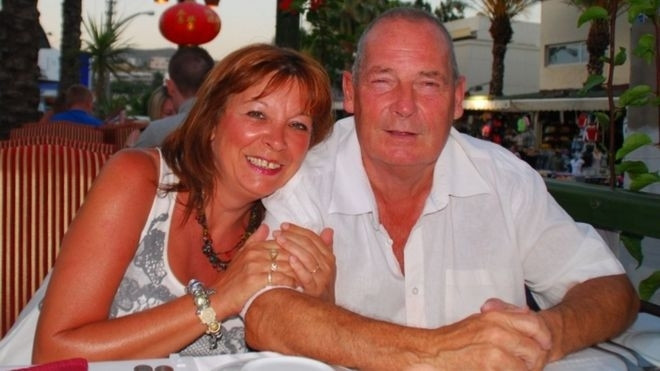Unmarried couples win same bereavement damage rights as married counterparts
Jakki Smith scores landmark ruling for same rights as spouses and civil partners.

A woman has won her legal battle to give unmarried couples the same bereavement rights as married couples.
NHS worker Jakki Smith, from Chorley, Lancashire, won a landmark ruling against the government for better legal rights for unmarried people who lose their partners.
Smith's lawyers argued at the Court of Appeal that her human rights had been breached by being denied standard bereavement damages of £12,980, paid out if a person dies as a result of negligence - but only to spouses or civil partners.
Her partner of 16 years, John Bulloch, died aged 66 in 2011 after an infection he had was missed by medics.
Bulloch, a former prison governor, had surgery to remove a benign tumour on his right foot in August 2011 but later fell ill while on holiday in Turkey.
Today (28 November) the Court of Appeal backed Smith's challenge, overturning an earlier High Court ruling against her.
Zak Golombeck, of law firm Slater and Gordon, who represented Smith, said: "This is an historic decision, and one that is long overdue.
"The way we live is changing. Couples are choosing not to marry but this does not detract from the bond they have."
Golombeck added that the government had drafted a bill to put the bereavement rights of unmarried partners on the same footing as their married counterparts in 2009 but it never went on to become law.
Smith said: "If you are living together the government classes you as a couple for the purpose of payments like council tax and Jobseeker's Allowance so why not when it comes to this?
"John and I had planned a life together. We were in it for the long run and the fact that our bond wasn't recognised, simply because we hadn't chosen to marry, was very upsetting.
"That's why I'm over the moon with the court's decision and I hope that the change in law will have a positive impact on other people who, for whatever reason, choose not to marry."
Smith said she would not benefit from the ruling as there was no possibility of a retrospective payment.






















